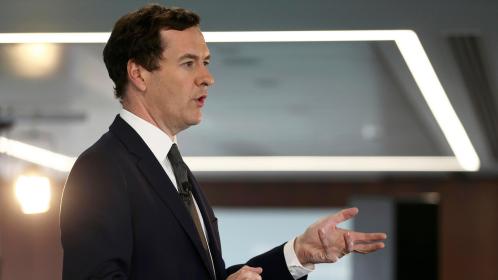
£20,000 to spare? Have we got Isa news for you
Let’s start with the positive. Next month, the amount you can put into a tax-free Isa every year will jump to £20,000, as our eight-page Isa special explains today.
And now the negative. It is very unlikely you can afford to save £1,666 a month — that’s £20,000 divided by 12. Sadly, not many of us earn as much as the new pin-up of the multitasking fraternity, Mr G Osborne, who has more jobs and makes more speeches (and sometimes remembers he is also an MP) than most of us.
Our former chancellor, who has surprisingly decided to add “newspaper editor” to his never-ending list of jobs, earns £650,000 a year for the 48 days he works at the American investment firm BlackRock.
While Osborne can make full use of his own cunning plan to raise the Isa allowance, the rest of us can at least use a bit of it.
And we all should. Cash Isa rates may be dismal (although they won’t always be), but if you do not use your annual allowance, you cannot ask for it back. Money is better shielded (legally) from the taxman than it is left exposed to the whims of a politician in Whitehall needing to fill a black hole.
Official statistics reveal that the average amount put into an Isa in 2015-16, the latest year for which figures are available, was £6,338. That’s less than half the allowance people had that year, which was £15,240.
Saving £6,338 a year is equal to putting aside £17.36 a day. That’s far more than many people can stretch to, but far less than many other people can afford to save yet often don’t bother to.
Can you think of anything you bought in the last month that was a total waste of money? Exactly.
A total of £518bn is invested in adult Isas in the UK. If you’re not a member already, join the club. If you need tips about becoming a member, or upgrading your existing membership, I hope our Isa special can help.
It just won’t go away, will it? Regular readers will remember my plea before the recent budget that the chancellor should not fiddle with pensions for at least the next 100 years. Philip Hammond proved very
co-operative on budget day and managed not to tinker with tax relief.
But will his abstinence last? Last week’s U-turn on the controversial increase
to national insurance paid by the self-employed leaves him with an unfilled gap
in the spreadsheets of
which he is said to be so fond.
Last Wednesday, the former pensions minister Sir Steve Webb tweeted: “Chancellor needs to find c£600m in autumn budget to replace class 4 Nics revenue. What are the odds on a cut in pension tax relief?”






